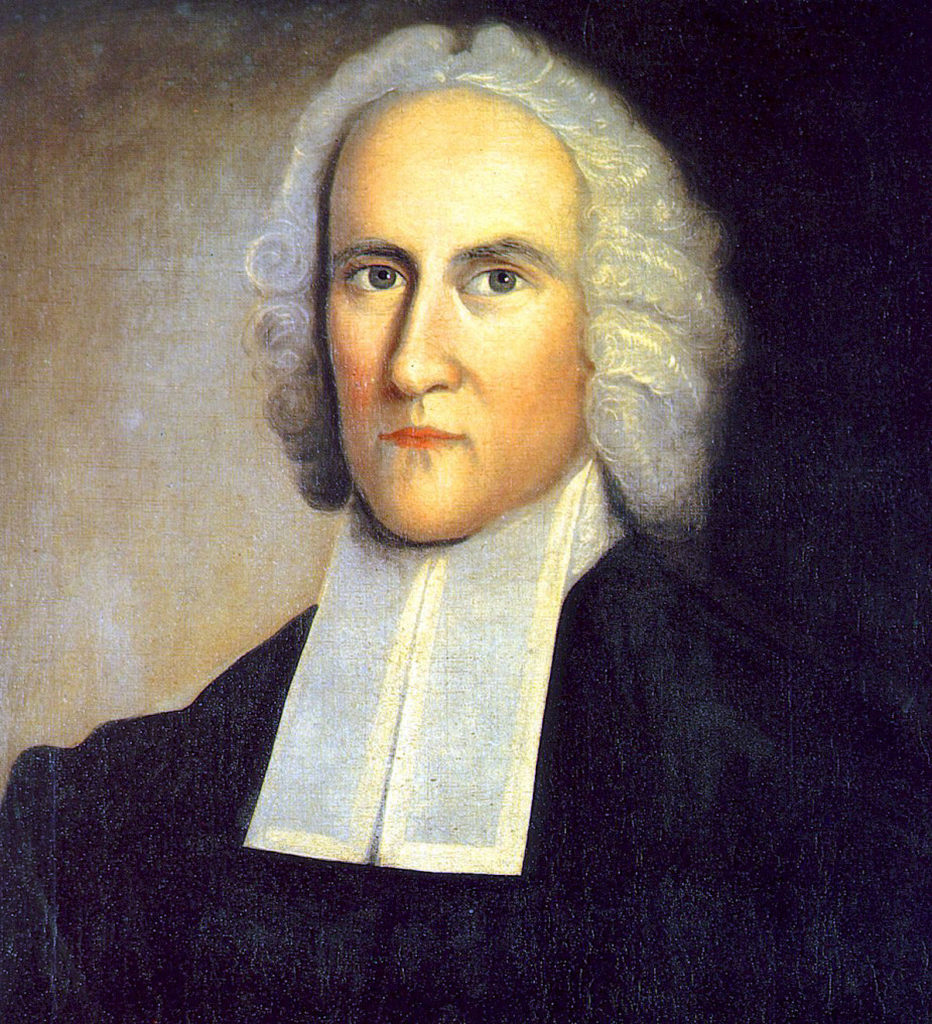In the late 17th and early 18th centuries, the Congregational Church in Northampton was presided over by the respected Reverend Solomon Stoddard, who was pastor of the church for about 50 years. Stoddard became known as the?Papa?Stoddard or the Puritan pope of the Connecticut Valley region?
During 50 years of ministry, Stoddard was able to greatly influence the customs of the Congregational Church in Northampton. Around 1675, he developed a doctrine called?Pact halfway?(Alianca do Meio Caminho, in a free translation). According to this doctrine, anyone in the city of Northampton who led a morally righteous life and had a good reputation for society could participate in the sacrament of the Lord’s Supper without having to be a professed member of the church. They had grown up in church and had not had scandalous lives that could participate in the sacrament, even if they were not members of the church.
- The famous Jonathan Edwards was the grandson of Solomon Stoddard and from 1727 he agreed to be his grandfather’s assistant pastor.
- A prominent biographer of Edwards.
- George Marsden.
- Said he initially agreed with his grandfather’s opinion of who might participate in the Sacrament of the Lord.
- Two years later.
- In 1729.
- With Stoddard’s death.
- Edwards became the titular pastor of the Congregational Church of Northampton.
- Over the years.
- Edwards continued to study the scriptures and works of great theologians of the past.
- And increasingly cared to allow those who had not made a credible profession of faith to participate in the Lord’s Supper.
- Some scholars claim that this has intensified as the number of un consecrated faithful has increased much more than that of believers with true trials of faith and salvation.
Around 1748 Edwards came to a conclusion. He realized that he could no longer allow things to go on like this, he could no longer allow the unbelievers to continue participating in what was reserved for the disciples of the Lord Jesus Christ, but faced the problem of having to change a practice established more than 70 years ago by his grandfather. It wouldn’t be easy. And it wasn’t.
In 1750, Edwards began preaching a series of sermons about the Lord’s food. As he explained the scriptures, negative reactions began to emerge to his preaching. On June 2 of the same year, the church council voted to end Edwards’ pastorate in that church and put the matter to a vote in the assembly. On June 22, 1750, the church voted to end Edwards’ pastorate. There were 230 votes against Edwards and only 23 in.
What does this episode tell us?
1. Pastors will always have to study to subject their pastoral thought and practice to the sieve of Sacred Scripture and what the Church has taught throughout history. They will never be able to live with the excuse of “we always have. “.
2. Es it is possible that the traditions already established in the church are simply old mistakes In the case of Edwards, a tradition of more than 70 years proved to lack a biblical foundation and, despite its antiquity, had to be confronted with the teaching scriptures.
Often, the church will not be willing to make changes, even if the pastor strives to nurture his faithful preaching and solid teaching. We always run the risk of clinging to the traditions of men, while neglecting the precepts of God’s Word (Matthew 15:1-9).
4. Even if much of a church is submissive and docile, will there be people who resist teaching and accuse the pastor of trying to do so?changing what has been practiced since ancient times. And as the shepherd continues, teaching and indoctrinating, he will be abandoned by some people, as happened with the Lord Jesus, by hardening his discourse in the ears of the following multitude (John 6:60) -66).
5. Even if he is powerless to all, even if he is dismissed, as happened to Edwards, a shepherd faithful to God as his butler needs to rest in divine judgment, knowing that on the last day the Lord will bring all things (1 Corinthians 4:1-5) This is what the Lord Jesus Christ did. This is what the Apostle Paul did in front of the church in Corinth, it is impressive that a church established by Paul himself turned against him, to the point that he had to write a full letter to defend his ministry (2 Corinthians).
The rejection of a pastor’s teaching and opposition to his ministry can never be understood as proof that this pastor is a bad shepherd. We are often pressured in front of people who leave the church, and we say that the pastor is to blame for this. We must understand that faithful doctrine will always provoke opposition; light always reveals the works of darkness; Moreover, there has never been a shepherd in history who has faithfully taught and faced fierce opposition; peace is not always synonymous with blessing There is no place more peaceful than a cemetery.
7. As Dr. Martyn Lloyd-Jones said, reflecting on what happened to Jonathan Edwards: “This was one of the most amazing things that has ever happened, and should be a stimulus for ministers and preachers. Was this immense genius, this powerful preacher, this man who was at the center of the great awakening there?and yet he was defeated in the vote of his church by 230 votes against 23 in 1750. So don’t be surprised brothers so it can happen to you in your churches. . ? (The Puritans: their origins and successors. P. 355).
May the Lord have mercy on all faithful ministers of the holy gospel of Christ!

